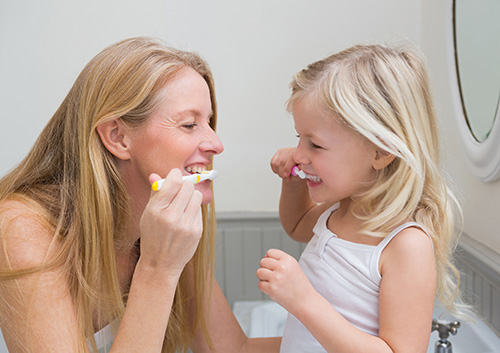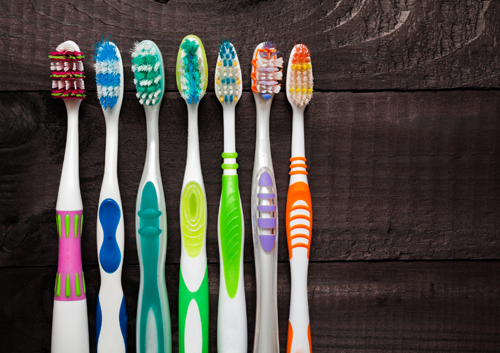March 9th, 2017

Brushing your teeth regularly is one of the most crucial parts of maintaining good oral health, and perhaps the most fundamental, however, there are also other elements involved. Flossing, for instance, is also vital; some experts would say, and Dr. Mark Webster and our team would agree, that it holds just as much importance as brushing your teeth. To give you a better idea of why, here are some reasons that flossing is so vital to your oral health.
Getting in-between the Teeth
While brushing your teeth effectively cleans all of the areas of your teeth that are visible, or otherwise not touching, flossing is vital because it reaches all of the areas between your teeth that you cannot see, and subsequently cannot clean using a toothbrush. These areas are among the most sensitive and vulnerable parts of your mouth because they are most susceptible to plaque and tartar buildup.
Reducing Bad Breath
It is not uncommon for someone who brushes their teeth once or twice a day to still have bad breath. The reason being is that bad breath is often created by smelly bacteria that lives in between your teeth, as well as other areas of your mouth that are not accessible using a toothbrush. And that is why flossing is one of the best ways to reduce or eliminate bad breath. Still skeptical? Try flossing your teeth with unscented floss, then smell it after, that awful scent is the source of your bad breath. Coupled with frequent brushing of your teeth, you will find that flossing can really help that stinky breath.
Brushing your teeth twice a day is hard enough, add flossing on top and it can be difficult to establish a regular habit. However, doing so is totally worth it; just look at the aforementioned reasons why. Use these for motivation the next time you don’t feel like flossing, and let us know if it worked at your next visit to our Cedar City or Kanab, UT office.
March 2nd, 2017

Do you ever find yourself gnawing at your nails? Nail-biting is a very common and difficult to break habit which usually has its beginnings in childhood. It can leave your fingers and nail beds red and swollen. But if you think that your nails are the only ones getting roughed up by nail-biting you'd be mistaken—so are your teeth!
According to a study by the Academy of General Dentistry, those who bite their nails, clench their teeth, or chew on pencils are at much higher risk to develop bruxism (unintentional grinding of the teeth). Bruxism can lead to tooth sensitivity, tooth loss, receding gums, headaches, and general facial pain.
Those are some nasty sounding side effects from chewing on your nails. Most nail-biting is a sign of stress or anxiety and its something you should deal with. So what steps can you take if you have a nail-biting habit?
There are several things you can do to ease up on nail-biting:
- Trim your nails shorter and/or get regular manicures – Trimming your nails shorter is an effective remedy. In so doing, they'll be less tempting and more difficult to bite on. If you also get regular manicures, you’ll be less likely to ruin the investment you’ve made in your hands and fingernails!
- Find a different kind of stress reduction – Try meditation, deep breathing, practicing qigong or yoga, or doing something that will keep your hands occupied like squeezing a stress ball or playing with a yo-yo.
- Wear a bitter-tasting nail polish – When your nails taste awful, you won't bite them! Clear or colored, it doesn't matter. This is also a helpful technique for helping children get over the habit.
- Figure out what triggers your nail-biting – Sometimes it's triggered by stress or anxiety and other times it can be a physical stressor, like having hang nails. Knowing what situations cause you to bite your nails will help you to avoid them and break the habit.
- Wear gloves or bandages on your fingers – If you've tried the steps above and they aren't working, this technique can prove effective since your fingernails won't be accessible to bite.
If you're still having trouble with nail-biting after trying these self-help steps, it's best to consult your doctor, dermatologist, or Dr. Mark Webster. For some, it may also be the sign of a deeper psychological or emotional problem.
Whatever the cause, nail-biting is a habit you need to break for your physical and emotional well-being. If you have any questions about the effects it can have on your oral health, please don't hesitate to ask Dr. Mark Webster during your next visit to our Cedar City or Kanab, UT office.
February 23rd, 2017

Most people think braces are all about their teeth. While it is true orthodontics is meant to move your teeth into proper position, there's more to it than that. To safely move your teeth with braces, you're going to need healthy and stable gums (or periodontium—the tissues that support your teeth).
For this reason it's critical to have your periodontal health evaluated prior to getting braces. This applies particularly to adults, since a 2013 study by the Center For Disease Control found that an estimated 47.2% of adults 30 years of age and older had periodontitis (gum disease). If you do have periodontitis, moving your teeth with braces will only make things worse.
Conversely, there is also risk for periodontal disease if you don't get orthodontic treatment. Malocclusion, as well as crooked and spaced teeth, can all contribute to periodontal disease. In these situations your teeth and gums are more difficult to clean and become breeding grounds for disease causing bacteria. Bad oral hygiene combined with these traits can greatly contribute to the development of periodontitis.
So, periodontics and braces have a tricky relationship. On one hand, you shouldn't get braces if you show signs of developing or have periodontitis, while on the other hand, braces can help prevent the possibility of developing periodontitis by correcting the bite and straightening the teeth.
If you are 30 years of age or older and are considering getting braces, it would be wise to first:
- Let Dr. Mark Webster know about your desire to get braces
- Get an exam to make sure you're in good periodontal health and a good candidate for braces
- If you are a good candidate, keep an eye on your teeth and gums and get regular dental checkups throughout your entire course of treatment.
If you are in any doubt about the status of your teeth and gums, it's always best to get them checked before embarking with braces treatment. For more information or to have your periodontal health assessed for braces treatment, please contact our Cedar City or Kanab, UT office.
February 16th, 2017

If you were to put your toothbrush bristles under a high-powered microscope, what you would see might give you nightmares: millions of bacteria, busily crawling up and down your toothbrush bristles, consuming proteins that came from your mouth, and still clinging to the bristles even after you’ve rinsed them with water.
Rinsing your toothbrush after brushing removes some of those ferociously hungry bacteria, but not all. The American Dental Association says that bacterial infestations develop on toothbrushes within a month of daily use. The ADA also states that unless a toothbrush is sterilized before being packaged, it’s going to come with bacteria – free of charge!
Germs and Frayed Bristles: the Demise of a Toothbrush
Dr. Mark Webster and our staff recommend that you toss your old toothbrush in the trash and purchase a new one every three months. Children tend to bite on their toothbrushes, which makes the bristles degrade and fray faster. Chances are kids may need to have their toothbrushes changed more frequently.
Where do they hide?
Bacteria are tenacious little germs that head for those concealed areas between toothbrush bristles. They are highly adaptable and exist in every type of extreme environment. Some people actually go so far as to put their toothbrush in a microwave for a few seconds to kill germs, but this doesn't always work either. In fact, you may only end up with a toothbrush that’s as bendable as a Gumby doll – and still covered with germs.
Feed a Cold, Starve a Fever, and Get Rid of Your Toothbrush
When you have a head cold, your mouth is teeming with bacteria gleefully roaming around, and gobbling mucus and dead skin cells. If you brush your teeth while suffering a sinus condition, the brush will act like a magnet for ravenous bacteria. Use your old toothbrush while you are sick, but as soon as you feel better, throw it away and get a new one. Otherwise you could possibly re-infect yourself with the same cold germs!






